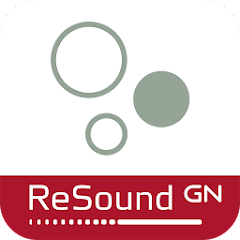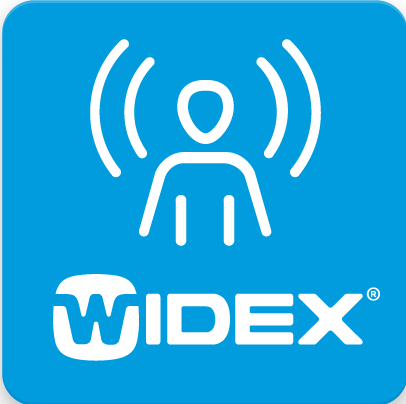Understanding Tinnitus
According to the American Tinnitus Association, tinnitus impacts up to 50 million people in the United States. Approximately 25% of the population of industrialized countries have experienced tinnitus at least once, 10 to 20% suffer chronically.
What is Tinnitus?
The term tinnitus comes from the Latin word tinnire (to ring) and is defined as the perception of sounds for which there is no external source. Many people describe tinnitus as ringing, while to others it sounds like humming, buzzing, or whistling. Regardless of its characteristics, tinnitus is a symptom of an impairment of the auditory processing system. The most common cause of tinnitus is noise exposure.
Some Hearing Aids Provide Tinnitus Therapy
While there is currently no cure for tinnitus, there are effective methods of achieving comfort and relief. Some hearing aids have a tinnitus therapy feature which can function as an independent sound generator or in a mixed mode with both the hearing aid’s microphone and the sound generator. Your hearing care professional can help you determine the type of therapy that is right for your tinnitus.
Tinnitus Causes
Unfortunately, the cause of tinnitus is often unclear…Though exposure to noise is often a contributing factor, in most cases, the causes for tinnitus are unclear and often none can be detected.
Conscious & Unconscious Perception of Sound
What we do know is that normally about 30% of external sounds are consciously perceived, while the rest are unconsciously faded out. When this filtering function works properly, it ignores some sounds. But when it is damaged, undesired signals can be excessively amplified.
When hearing is intensely stimulated over a long period of time, it can result in a residual sensory perception even though the stimulating factor is long gone. This is why it is important to distract the individual’s attention away from the tinnitus in order to prevent a chronic manifestation.
Tinnitus Relief
There is no cure for tinnitus, but there are effective ways to get comfort and relief. The key to relieving tinnitus is distracting your brain with a less obtrusive sound. The distraction approach, using noise generators or maskers, is often used in tinnitus relief therapies. These devices help the hearing system concentrate on external sounds by replacing the negative auditory impressions with positive ones.
Since the complete masking (acoustic concealment) of tinnitus would require at least the same volume as the tinnitus sound, it could become uncomfortable in the long run. However, some noise generators produce comfortable sounds that can be individually selected by the patient. This sound has to be quieter than the tinnitus, so that the brain can be trained to concentrate on outer sounds again and to discontinue the fixation to the inner sound.
Tinnitus Therapy Available in Some Hearing Aids
Many of the newer medical hearing devices have a tinnitus therapy feature which can function as an independent sound generator or in a mixed mode with both the hearing aid’s microphone and the sound generator. Your hearing care professional can help you determine the type of therapy that is right for your tinnitus.
Tinnitus Treatment
Our product portfolio includes specialized tinnitus solutions…
Tinnitus therapy hearing aids divert attention away from the disturbing tinnitus sounds. They make it easier to listen to external sounds again instead of permanently concentrating on annoying internal sounds. The sound emitted by the hearing aids draws focus away from the tinnitus.
Hyperacusis Relief
Hyperacusis is when certain environmental sounds are perceived as painfully loud. Thanks to their flexible programming, some hearing aids can be used for hyperacusis treatment and can provide comfort to the wearer.
Tinnitus & Hearing Loss
Research shows that more than 50% of people affected by tinnitus also have an inner ear hearing impairment. There may be a correlation between tinnitus and hearing loss. Treatment with hearing aids is often the first step to relief from tinnitus. Hearing aids compensate for the hearing loss, which enables concentration on external sounds, instead of the internal noises.
Types of Tinnitus & Tinnitus Symptoms
There are several types of tinnitus with different symptoms:
Objective Tinnitus:
- Can also be heard by a doctor
- Occurs rarely, e.g. due to tension or vascular deformities
- Usually disappears upon treatment of the cause
Subjective Tinnitus:
- Most common type of tinnitus
- Can only be heard by the affected individual
- Acute tinnitus
- Appears suddenly
- Lasts up to 3 months (acute) or ends inert 12 months (subacute)
Chronic Tinnitus:
- Tinnitus that persists longer than 12 months
Compensated Tinnitus:
- The affected individual is able to manage well despite the tinnitus
- Quality of life is not limited
Chronically Complex (or Uncompensated) Tinnitus:
- Quality of life is disturbed to such an extent that it reaches pathological significance
Tinnitus Relief At Your Fingertips

The ReSound Relief app is one of the most useful hearing aid apps in the market for relieving and managing tinnitus. As part of a tinnitus management program, the ReSound Relief app offers a combination of sound therapy, relaxing exercises, meditation and guidance, whenever you want and wherever you are.

The ReSound Relief app is one of the most useful hearing aid apps in the market for relieving and managing tinnitus. As part of a tinnitus management program, the ReSound Relief app offers a combination of sound therapy, relaxing exercises, meditation and guidance, whenever you want and wherever you are.
